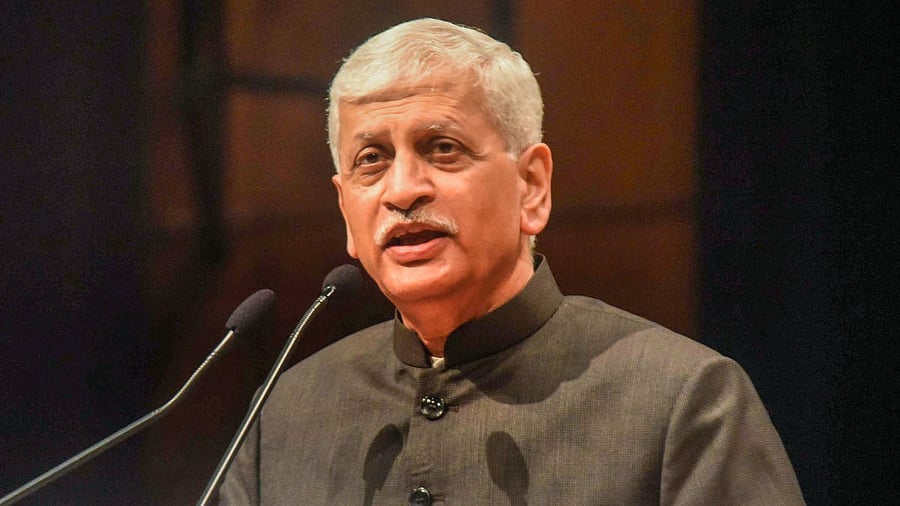
Ex-Chief Justice of India U U Lalit.
Credit: PTI Photo
New Delhi: Former Chief Justice of India U U Lalit on Tuesday suggested rolling out simultaneous Lok Sabha and Assembly elections in a phased manner but warned that some provisions in the bill to amend the Constitution to enable 'One Nation, One Election' (ONOE) may not stand the test in Supreme Court, sources said.
Justice Lalit presented his views before the Joint Parliamentary Committee examining the two Bills on 'ONOE'. Former Law Commission Chairperson Justice Ritu Raj Awasthi, who is presently a judicial member in the Lokpal, also appeared before the multi-party panel headed by senior BJP MP PP Chaudhary.
Sources said Justice Lalit was supportive of the idea of simultaneous elections but he advocated a staggered approach in its rolling out rather than having a "single cut-off" date. He was of the view that the Constitution (129th Amendment) Bill, 2024 required reworking because some provisions may not stand the test in the apex court.
While sources did not specify the provisions that could face trouble during a judicial scrutiny, objections have been raised by BJP ally JD(U) among others over curtailing the tenure of some state Assemblies to enable the conduct of the simultaneous polls.
The Bill proposes that the President, through a notification issued on the first sitting of the Lok Sabha post general elections, will set an “appointed date”, which would mark the beginning of the new electoral cycle. The terms of Assemblies that come into being after the appointed date will be curtailed to hold elections with next Lok Sabha polls.
Opposition members, including Congress MP Priyanka Gandhi Vadra, were critical of the two Bills, which also included one to align polls in union territories, claiming that simultaneous polls would weaken democracy.
Sources said Awasthi told the panel that the argument that simultaneous elections undermine free and fair elections is unfounded. Instead, he said, synchronised elections would enhance the electoral process by reducing costs, ensuring efficient governance, and maintaining the democratic framework of periodic elections.
Supporting the idea of ONOE, he also said the proposed amendments do not restrict the right of citizens to vote and elect their representatives but merely standardise the timing of when these elections are held.
Senior IAS officer Niten Chandra, Secretary of the high-level Ram Nath Kovind Committee on ONOE, and E M Sudarsana Natchiappan, former Congress MP who had headed in 2015 a Parliamentary Committee that favoured simultaneous polls, could not depose before the panel due to paucity of time. They are likely to be called in the next meeting.
